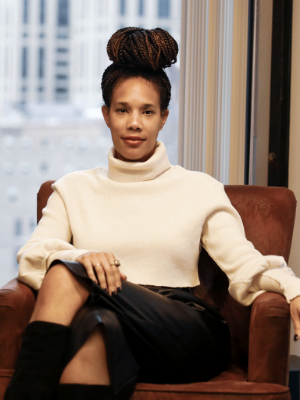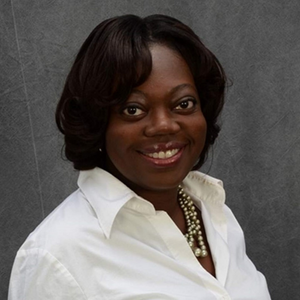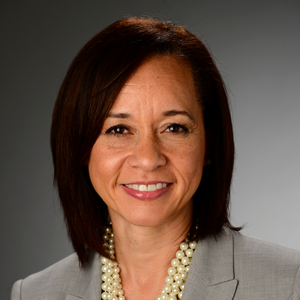Spotlight on Change: Black History Month
 February is Black History Month—a dedicated time to, in part, shine light on all the challenges people of color have faced historically and continue to face in a modern context. In today’s social setting, Black women still face several unique challenges in life and in business. In fact, statistics paint a realistic picture of just how many challenges Black women confront to achieve professional success, especially as business owners.
February is Black History Month—a dedicated time to, in part, shine light on all the challenges people of color have faced historically and continue to face in a modern context. In today’s social setting, Black women still face several unique challenges in life and in business. In fact, statistics paint a realistic picture of just how many challenges Black women confront to achieve professional success, especially as business owners.
- There are more than two million Black-owned businesses in the United States, but women own only 35% of these. In addition, businesses owned by Black women earn significantly less income than businesses owned by other women.
- Less than four percent of all startups are founded by Black women. Although this figure doubled between 2016 and 2018, it is still far below other groups.
- Businesses founded by Black owners receive less than one percent of the total venture capital invested in this country, and only a small portion of that amount goes to companies led by Black women.
Despite the myriad of challenges women of color have faced, however, many have overcome them to achieve tremendous success and have inspired new generations of Black women to pursue their dreams.
Among the ranks of highly successful Black women at the helm of prosperous companies is Zandra Cunningham, who founded Zandra Beauty when she was just 10 years old. Now her products are found at major retail chains, including Target.
Farissa Knox is the CEO of RLM, a leading full-service integrated marketing and communications advertising agency. On the first day of Black History Month 2022, RLM announced its new social impact program called the RLM Reading Nook Initiative.
This initiative includes a five-year commitment to help women and girls in their local communities across the US and even abroad. To accomplish this goal, RLM is partnering with organizations that prioritize reading and are committed to ensuring all future female leaders have full access to books and education.
These collective efforts are purposeful about empowering girls with the freedom that comes through literacy and educational insights often required for professional success. Throughout the coming five years, RLM intends to raise and/or donate $500,000 in literacy education and hard materials to girls around the world.
Knox believes the Reading Nook Initiative is vital in the quest to help young Black women achieve success. “Women and girls across the globe are still being told by lawmakers and family members and everyone else in between what they can and cannot do, or what’s right or wrong for them,” she says. “I am an activist for women’s freedom, and I believe the number one way to freedom is through education. The more we know, the more we take power into our own hands and make decisions for our own lives. I want that for all women, and especially for Black women.”
To accomplish this purpose, Knox believes it is important for successful Black women to tap into their power and add value to the world for the following three reasons:
1. To change the minds of those who might have a deficit-based view about Black people and/or Black women and their ability to thrive in the world. There is still a lot of latent racism and sexism in modern society, and we have seen that ugliness more prominently in recent years. However, there are far more unexpressed—and sometimes even unacknowledged—biases that significantly impact the ability of minority groups to achieve success.
These hidden biases and stereotypes present formidable barriers. One such barrier has been Black business owners’ longstanding lack of access to venture capital. Even when the data says otherwise, stereotypes persist about the ability of Black business owners to successfully lead their companies as well as about the credit-worthiness of individuals. The only way to change these perceptions is to refute the narrative head-on—a necessity that underscores the importance of developing highly visible initiatives that demonstrate the competence, intelligence, and leadership abilities of women, particularly Black women.
2. So that young girls and children of color can see live examples of great leadership working in their communities, and they can be inspired to do something great too. Representation matters. If you don’t think it does, consider this: If you ask any American to name a few successful business owners or leaders, most could name at least five without giving it a second thought—but if you look at their list, you will most likely see names such as Jeff Bezos, Elon Musk, and Mark Cuban. If you specifically ask them to name a female leader or business owner, they might come up with one or two names at best. But most people in this country would not be able to list a single successful Black woman-owned company or CEO without doing some research.
Perhaps more significantly, most people wouldn’t give this fact a second thought. However, this lack of representation in the upper rungs of company leadership is a fact that Black women and girls live with every day. They don’t see the potential for success every day, but they do see the barriers to achieving that success every day. Those barriers are a substantial and unavoidable part of their lives—and that is why it is so important for successful Black women to be highly visible.
3. To ensure that we share our wealth, resources, and prosperity within the Black community and strive to change the narrative so our youth know they can avoid becoming a statistic. Once again, succeeding in this effort boils down to fostering hope and vision.
As a society, we need to start focusing on the many positive developments happening among Black youth in our country. They are capable of great things, but in many instances, they are discouraged from even trying because the statistics are not in their favor. When successful Black leaders can use their resources to help tip the scales to a more equitable environment for Black youth, it leads to new opportunities and tremendous growth for these young people, both in the near and long-term future.
That’s why the Reading Nook Initiative with RLM is so important. It provides an avenue through which to help young Black girls empower themselves with knowledge and to recognize their potential to achieve any dream they might hold in their chosen profession. When these young leaders can envision a successful future, then the sky’s the limit on what they can accomplish.
By Rikki Roehrich
(Guest contributed articles do not necessarily reflect the views of theglasshammer.com).


